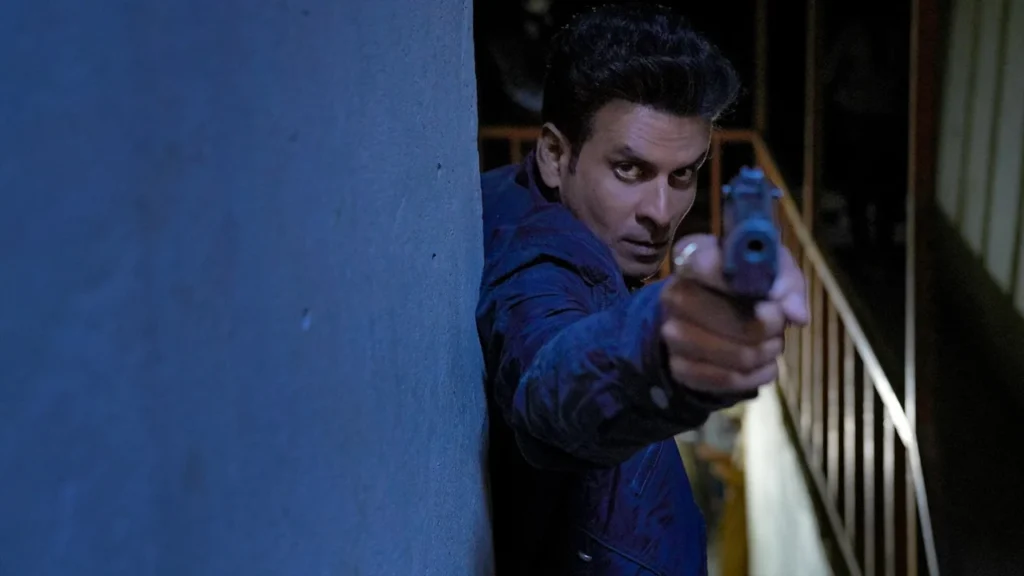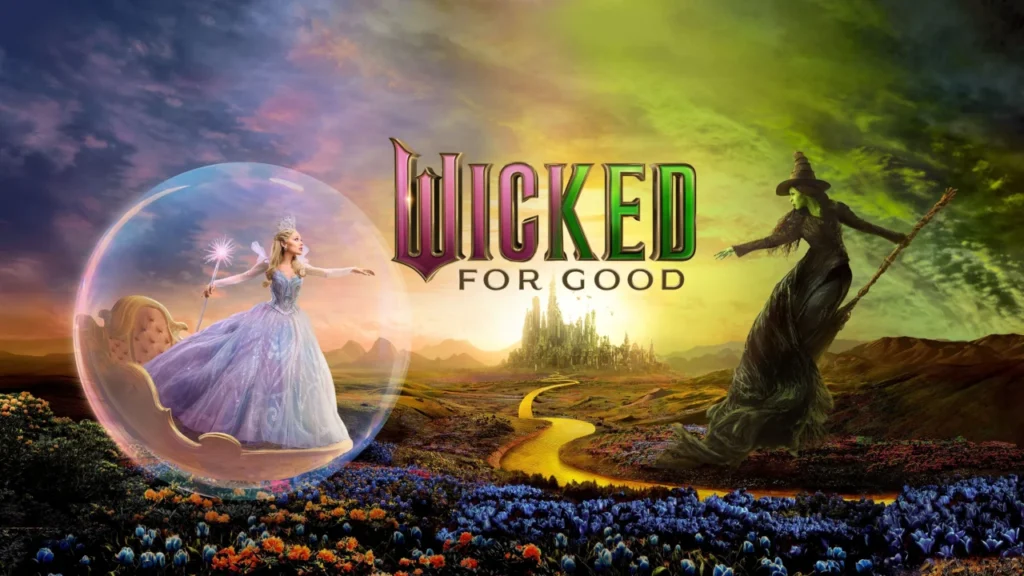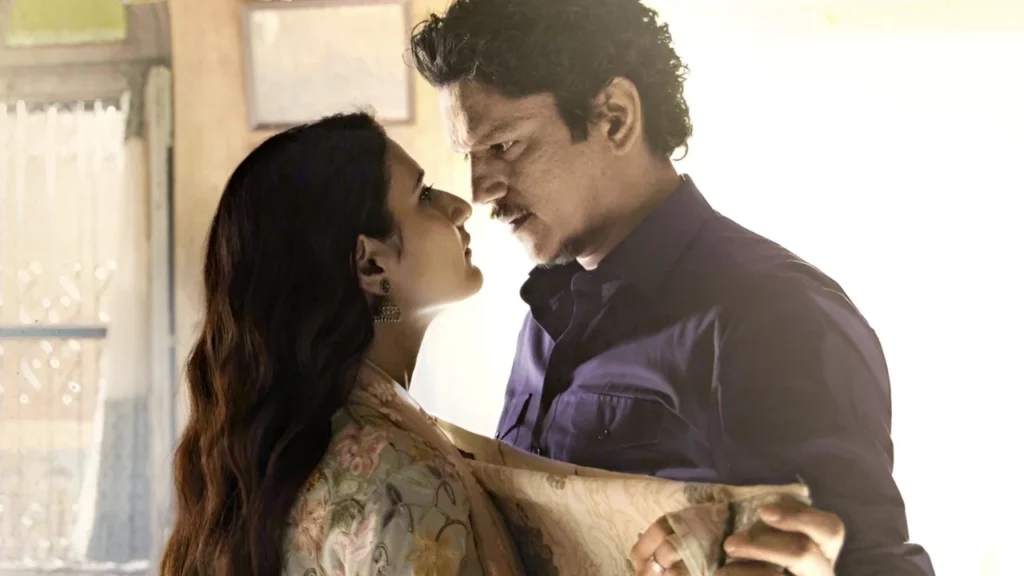
The Girlfriend (2025) Movie: Rashmika Mandanna’s Powerful Take on Love Gone Wrong
When a film tackles uncomfortable truths about modern relationships, it risks alienating audiences. The Girlfriend takes that risk and mostly succeeds. Rashmika Mandanna leads this Telugu drama that questions everything we’ve been taught to accept about love.
Released this November, the film brings together Dheekshith Shetty and Anu Emmanuel under director Rahul Ravindran’s vision. What emerges is a story that refuses to romanticize behavior that’s long needed questioning in Indian cinema.

When Love Becomes a Cage
Bhooma arrives in Hyderabad with dreams of studying literature. She’s gentle, bookish, and unprepared for what’s coming. Vikram spots her and decides she’s his. Not in the sweet way romantic films usually show us. In the way that makes your skin crawl.
The brilliance here is in the subtlety. Vikram doesn’t hit Bhooma. He doesn’t scream at her in public. He does something far more insidious. He makes her feel like she owes him her entire existence because he “loves” her.
Watching their relationship unfold felt like reading messages from friends who’ve been in similar situations. The way Vikram disguises jealousy as concern. How he frames control as protection. These patterns aren’t fiction for many watching this film.

Performance That Commands Attention
Rashmika Mandanna has done good work before. This tops it all. She becomes Bhooma so completely that you forget you’re watching an actor. Her eyes carry volumes of pain, confusion, and eventual clarity that dialogue alone could never convey.
I’ve watched Rashmika in lighter roles where she brings charm and energy. Here, she strips all that away to show vulnerability that feels almost too real to watch. There’s a scene where she looks in a mirror and sees not herself but a future she’s terrified of becoming. Rashmika makes that moment devastating.
Dheekshith Shetty has the harder job. Making a toxic character believable without making him a cartoon villain requires skill. He pulls it off. Vikram isn’t evil incarnate. He’s the guy many people have dated or know. That’s what makes him scary.
Anu Emmanuel brings warmth as the friend who sees what’s happening and refuses to stay silent. Their friendship scenes reminded me why women’s support systems matter so much. Rao Ramesh appears briefly but leaves an impact as a father who fails his daughter in different but equally damaging ways.

Where the Film Soars
This movie gets right what many Telugu films get wrong about relationships. It shows that violence isn’t just physical. That love shouldn’t feel like suffocation. That walking away from someone who claims to love you might be the bravest thing you do.
The music by Hesham Abdul Wahab enhances rather than overwhelms. His melodies carry longing and pain in equal measure. When Bhooma finally makes her decision in the climax, the background score doesn’t tell us how to feel. It simply supports what’s already emotionally powerful.
I appreciated how director Rahul Ravindran avoids melodrama. There’s no dramatic courtroom scene or violent confrontation. The resolution comes through Bhooma finding her voice and using it. That’s revolutionary for mainstream Telugu cinema.
Where It Loses Its Way
The second half repeats itself too often. We understand Vikram’s nature within the first hour. The film then spends another hour showing us variations of the same dynamic. Tighter editing would have strengthened the impact.
Some supporting characters feel underwritten. Bhooma’s father subplot introduces another layer of male toxicity but doesn’t explore it deeply enough. It feels added to make a point rather than naturally emerging from the story.
The college setting occasionally breaks immersion. Certain freedoms shown between students don’t match the conservative institution the film otherwise depicts. These inconsistencies distract from the emotional truth the story is trying to convey.
Critical Reception
Reviewers have been largely positive, especially about Rashmika’s work. Cinema Express praised the film’s craft and relevance while giving it 4 stars. The Times of India highlighted how it exposes control masquerading as affection, awarding 3.5 stars.
The Indian Express noted that while some directorial choices feel familiar, the story itself resonates in meaningful ways. The Hindu called it brave for asking questions that make people uncomfortable about relationships.
Not everyone was convinced though. Some critics found the pacing problematic and the male characterizations too one-dimensional. Ratings ranged from 2.5 to 4 out of 5, showing the film divides opinion even among those who appreciate its intentions.
Audience Response
Social media reveals strong reactions. Women are sharing how the film mirrors their own experiences with controlling partners or family members. Men are split between those reflecting on their behavior and those defensive about the portrayal.
The film has sparked conversations beyond just entertainment value. People are discussing red flags in relationships, the difference between love and possession, and why women stay in situations that hurt them. That’s the mark of cinema that matters.
Hesham Abdul Wahab’s soundtrack has found an audience beyond the film. Tracks like “Reyi Lolothula” are streaming in millions, showing how good music survives even when films face mixed reception.
The Bigger Picture
The Girlfriend matters because Telugu cinema rarely centers women’s perspectives in romance. Films have long glorified aggressive male pursuit. Here’s one that shows the damage such behavior causes.
This isn’t perfect filmmaking. The runtime could be shorter. Some scenes lack the punch they need. Character development beyond the leads feels shallow. But the core message lands with force that’s hard to ignore.
Rashmika Mandanna elevates material that could have been preachy into something genuinely moving. She understands Bhooma isn’t just a victim but someone finding strength she didn’t know she had. That journey feels earned rather than imposed.
Director Rahul Ravindran shows courage in his choices. He knows this film will make people uncomfortable. He does it anyway because the story needs telling. In an industry that plays it safe with romance, that’s noteworthy.
Worth Your Time?
If you want entertainment that doesn’t challenge you, skip this. The Girlfriend will disturb you. It should. Healthy relationships shouldn’t feel like prisons, yet the film shows how easily they become exactly that.
I recommend watching with someone you trust. This film will spark conversations you need to have. About boundaries. About respect. About recognizing when love stops being love and becomes something darker.
Rashmika Mandanna alone justifies the ticket price. She’s that good here. But beyond her performance, the film serves as a mirror for society to examine what we’ve normalized in romance. That examination is overdue.
The Girlfriend isn’t the definitive word on toxic relationships. It’s a starting point for discussions that matter. In that role, it succeeds more than it fails.
Rating: 3.5 out of 5










